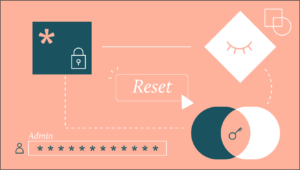In a rapidly evolving job market, career colleges have discovered a game-changing ally: online learning. This isn’t just a digitized rendition of classroom slides; it’s a dynamic, interactive platform that transforms how knowledge is consumed and retained. With an array of multimedia resources at their fingertips, students can now tailor their educational experiences to fit their unique learning styles. This personalization leads to a deeper, more enduring understanding of course material, which, in turn, equips them with the real-world skills employers crave.
Leveraging Flexibility for Deeper Engagement
The traditional brick-and-mortar setting demands that life bends around school schedules. Online learning flips this on its head, offering unmatched flexibility. Suddenly, parents, full-time workers, and even those in remote areas can pursue their career goals without sacrificing their commitments. This flexibility results in a broader demographic reach and, more importantly, a more engaged student body. When learners can study at their pace, on their schedule, their engagement intensifies, leading to better outcomes and higher course completion rates.
Cost-Effectiveness: More Than Just Savings

On the surface, online learning presents clear cost savings—fewer physical materials, no commute costs, and minimal campus maintenance. But there’s a subtler financial narrative at play. Online learning programs offer versatility that physical foundations can merely fantasize about, serving more students without the relative expansion in resources. Also, the information-driven nature of e-learning platforms permits universities to calibrate their projects given constant feedback, upgrading the nature of schooling while at the same time holding costs under tight restraints.
Accelerating Professional Growth
Career advancement is often a race against time. Online learning is the turbo boost that professionals need to stay ahead. By providing up-to-date content and industry-relevant skills quickly, online courses empower students to pivot and advance in their careers without the lag time associated with traditional education. This immediacy is a boon to both learners and employers, who benefit from a workforce that’s current with the latest trends and technologies.
A Green Initiative for the Modern Campus
There’s a greener past in online learning that is often overlooked. With a reduced need for physical infrastructure and resources, online programs contribute to a more sustainable future. The environmental impact of thousands of students commuting and the resources needed to maintain a campus are significant. By transitioning to virtual classrooms, career colleges contribute to the conservation of our planet, providing an education that is as kind to the environment as it is effective.
Conclusion
As we assess the ROI of online learning for career colleges, it’s essential to consider the full spectrum of advantages. From personalizing the learning experience to reducing the ecological footprint, the value of online learning extends far beyond mere dollars and cents. In a market that continually demands innovation, companies like Orange InfoMedia stand as testaments to the power of technology in education. Online learning isn’t just a worthy investment; it’s an indispensable asset in the toolkit of modern educational institutions.











